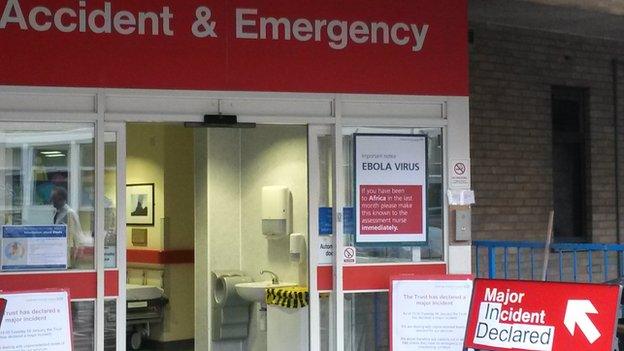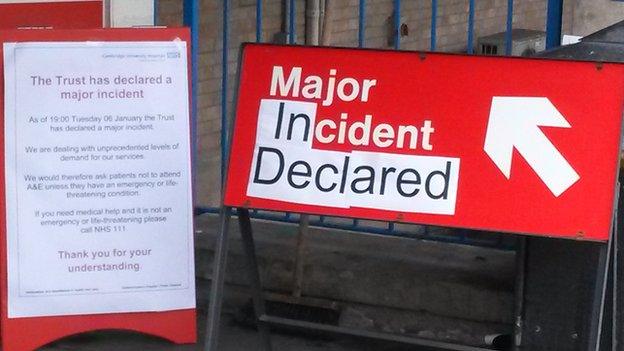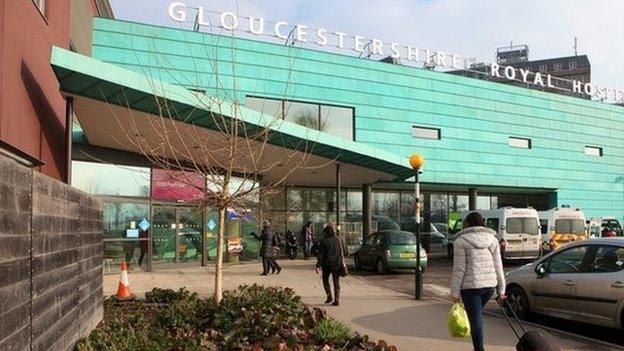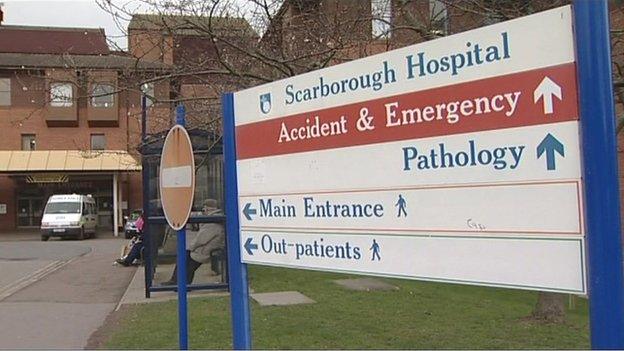Addenbrooke's chief Dr Keith McNeil denies NHS crisis
- Published

Addenbrooke's Hospital declared a major incident on Tuesday and has cancelled non-emergency admissions
The NHS is not in crisis, the chief executive of Addenbrooke's Hospital in Cambridge has said.
The 1,000-bed hospital declared a major incident on Tuesday as it struggled to cope with patient numbers.
Dr Keith McNeil said 200 beds could be freed by sending patients home if community care packages were in place.
"We have a demand pressure and we've got a challenge but people are still receiving high-quality, safe care," he said.
"I don't agree it [the NHS] is in crisis."
A number of hospitals across England have announced major incidents due to extremely high numbers of patients.
"Major incident" means hospitals are facing exceptional challenges and it triggers measures including extra staff being called in and the cancellation of non-emergency care, such as routine operations.

The hospital's chief executive said he hopes the incident will be over in a "couple of days"
Dr McNeil, chief executive of Cambridge University Hospitals NHS Foundation Trust, said the surge in demand was greater than anticipated and due to a number of reasons.
"There's a large number of people requiring acute care," he said.
"A lot of them are older - we have 300 people over the age of 85 and the level of care they require is very significant.
"It's not just ageing, but it's the chronic disease and complexity of disease... with people who are surviving cancer treatments, heart attacks, etc."
'Longer' waits
The hospital has urged relatives of patients who are medically fit to be discharged to take and care for them at home.
"If you have a heart attack or a major trauma or need that sort of care, you can turn up to hospitals and you will still receive it," said Dr McNeil.
"People are having to wait a little longer than is ideal but we are still providing that care at a very high level."
Dr McNeil said he hoped the major incident would "only last a couple of days" and system changes and the re-designation of staff were helping to ease issues.
Figures released on Tuesday revealed the NHS in England had missed its four-hour A&E waiting time target with performance dropping to its lowest level for a decade.
- Published7 January 2015

- Published5 January 2015
